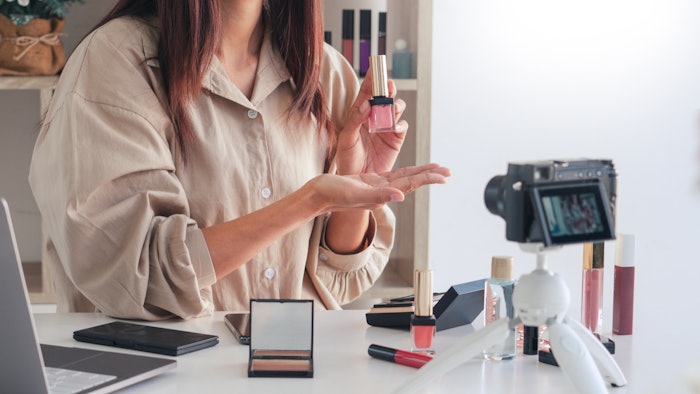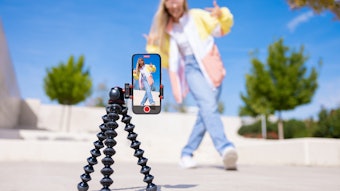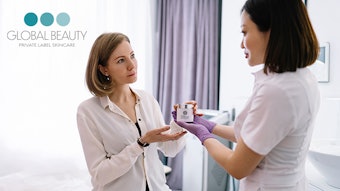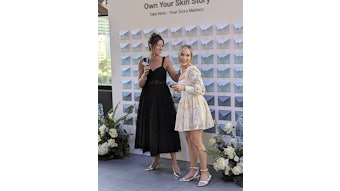
This is an article that I have wanted to write for some time now. The power of social media is incredible, fascinating and alarming. It's incredible that you can get a message out to the world in seconds. It's fascinating, the reach that a message has and alarming due to the weight of the message—is it truthful or not? Are people being misled?
Social Media has changed tremendously throughout the years, so much so that colleges offer degrees in media studies, personal branding and influencer marketing strategy. In the past I found social media to be more personal and focused on the community. We saw people sharing more real life experiences especially with their skin care issues. It didn’t feel like social media was coming from a marketing company, it felt authentic and no agenda attached to it other than to help and be real as if it were coming from a friend. I have seen our industry get influenced the most from this crossover of personal and business becoming one. It used to be word of mouth professional endorsements that drove our business, and now being incorporated in an influencer’s daily routine seems to carry more weight. I definitely notice social media has made skin care more talked about and accessible, which is awesome! We are in the days of influencers selling us everything from skin care products, spa services, athletic gear, cosmetics, smoothies and vitamins. You name it, they sell it. That's the key to remember—they sell. Influencers can sell out a company’s product overnight. I see clients and consumers trying to navigate through contradictory advice and fads. The majority of influencers in the skin care industry are not licensed professionals; a few are, which is terrific. I applaud skin care influencers who take the time to research ingredients and skin care company philosophies. I love when they research the science of how a product is made and why. This dedication to accuracy is professional, and shows me that they are authentic and care about their followers’ skin issues.
Most influencers have excellent content that we can learn from, but as with any industry, there are people out there just looking to push products for money. Due to the increase of skin care influencers reaching a younger audience, I have had more clients bringing their daughters in for skin care advice–which in itself is fantastic. However, many of the girls are between six and 13 years of age, and they want to use products from the big box stores that are mainly for advanced adult skin care issues. They watch their favorite influencer demonstrate skin care products and trends, and want to enjoy them for themselves, not understanding that the products and trends are too aggressive for their skin at their age.
Although they’re too young, it’s remarkable that the youth are interested in healthy skin. To that end, while it’s great that kids are being introduced to caring for their skin sooner, there needs to be some moderation. As we know, it's easier to prevent and teach the importance of skin education than it is to correct the damage done before a skin care education. I tell girls of this age that those products are too harsh for their skin and can cause more damage than help, especially with their skin barrier. Most understand, but social media heavily influences others. Overall, I believe they want to be part of taking care of their skin, which is terrific, so I start their protocol off extremely simply, such as explaining why it's essential to cleanse their face at night and apply a lightweight natural or organic moisturizer, it can even be organic olive oil. I recommend that other estheticians facing similar situations use their specialized, certified training as a foundation to educate young clients, and their continued education as additional tools for teaching down the road. Skinfluencing can also be a topic we discuss at spa conferences; we can work together to help our youth with issues like self-esteem if they experience acne, what to do or any other skin concern. We have an opportunity to help the youth and let them know that everyone's skin care needs are different; skin care is not a cookie cutter. Healthy skin does not need to look like a filtered picture or video. Estheticians have an opportunity to step in and redirect using compassion, education and clarity on skin health rather than trend chasing.
It would be unfair to say that all influencing is just trend chasing, though. Let's dive into what an influencer is, and what a typical day is for them.
Their days are busy! Starting off with emails, going over product content, negotiating brand contracts and multiple partnerships—especially if they do this full-time. They have a lot to get through in a day, so organization is key for them. It’s a demanding job: filming, lighting, editing, script writing, managing their DM’s, tracking post engagement and staying on top of trend cycles. The industry is fast-paced and keeping up with what is relevant could be a full-time job in itself. Their lives become platforms built on a mix of personal and business, and these platforms are powerful in shaping consumer thinking.
A skin care influencer promotes products to their audience and discusses their experience. Their audience is their following across social media platforms such as YouTube, Instagram, TikTok, Facebook or any vlogs or blogs. Some go into detail about the ingredients in the products and how they work on their skin; they need to be authentic and engaging with their audience. Skin care companies look for these qualities so they can partner with influencers to sell their products to a targeted audience.
The amount of money a skin care influencer can make depends on the number of followers they have and their engagement rate. They get paid by skin care companies when they post, with posts being anywhere from $20 to $50,000 per post! It all depends on the number of followers they have and how engaging they are. Some influencers get paid a commission on the sales they generate. This is the part that amazes me—some influencers provide a subscription model to their followers and charge for skin care routines, consultations and tips. While it’s brilliant marketing on their part, this could be an issue because everyone's skin is different.
Due to skin care influencers, we often see clients come in asking for a certain treatment that an influencer recommends, which may not be the correct treatment for them, but the clients think it is because so-and-so on social media is doing it. What makes a skin care influencer different from an esthetician is simple: training and state board credentials.
Licensed estheticians are professionals trained in skin physiology, hair removal, facials and more. A skin care influencer does not need formal education or licensing, however, they have marketing awareness on how to create and sell content. So how do we curate influence? We know skin inside and out; we work with our clients on an intimate level. Clients trust us with our expertise mainly because we work directly on their faces, which is a vulnerable area for them. We often don't have time to post anything, let alone eat lunch. We are typically occupied with client after client all day; we work and then come home exhausted. My main priority is my clients and giving them my undivided attention. In the treatment room, I am my clients’ professional skin care influencer. They know it and feel it. I make the recommendations, educate them about their skin and devise short- and long-term goals right in the treatment room. Many estheticians and dermatologists are influencers themselves. They educate and show us what happens to the skin with certain skin conditions and how those conditions interact with protocols, devices and products.
We can learn a lot from skin care influencers and vice versa. For the estheticians who want to curate influence without turning it into a second job though, I recommend the following:
- Encourage loyal clients to share their experiences on their social media and yours. Have a QR code ready for them to scan and leave an authentic review. Authentic reviews carry more weight than any influencer's endorsement. This goes a long way and has helped my business tremendously. Additionally, you can have clients tag your spa to better leverage your relationship. This encourages good organic reach. Choose a client who truly loves your services, and have your client post about the treatments they received. You can always give your client a free upgrade to provide you with free advertising.
- Define your brand values. It's essential to be clear about your philosophy, mission and what makes you unique. Knowing what you stand for will attract the right clientele for you, which will increase client retention because these clients will identify with you.
- Offer events and workshops. Since you are the expert, you can offer exclusive classes, live demos and Q&A sessions. You can offer this asynchronously online, through live webinars or in-person at your spa.
- Optimize your email and SMS Lists. Use this direct marketing tactic to educate, give updates and offer personal specials for them. I like this because it comes from the heart and lets clients know you care. Mine look something like:
"Hi Mary,
I was thinking of you and hope you are well. I am excited to share our newest treatment with you! It's incredible in helping the skin's hydration. I remember you telling me your skin has been dry lately. Let me know when you can come in, I would love to see you!
Lisa"
I have noticed a shift in my community recently. I’ve seen an increase in people wanting genuine connection. By providing personalized services and genuine care, you can create a client who’s loyal for life, and that’s something hype just can’t buy. I believe it's important to stay true to your expertise and passion, and not to chase trends that do not align with your values just because they’re promoted on social media. Promote what is in your client's best interest and in your heart. That’s powerful!
We can work together with influencers by inviting them to our spas to generate buzz around a new service or skin care line, while focusing on education rather than sales. A great idea would be for an influencer to show what it's like to go to a spa and get a treatment; this would open a window for people who have never been to a spa to come in, as there are still many people who are too intimidated to come into a spa. Another idea would be for a content creator and an esthetician to do a live Q&A. This brings professional education and professional on-the-job experience to the audience.
We can all learn from each other and stay in our power of what is in our client's best interest. Remember why we became estheticians? We want to help people feel good. What a beautiful gift this is. I am proud of my industry; we are caring, passionate professionals, and I honor you all.











